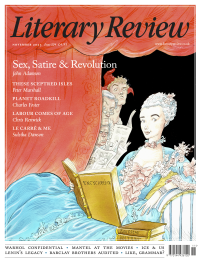Lesley Smith
The Maker’s Hand
In 1935 the critic Walter Benjamin published a now-famous essay, ‘The Work of Art in the Age of Mechanical Reproduction’, in which he argued that new technology for making high-quality copies would render originals largely worthless. When indistinguishable copies could be had easily and cheaply, the line between the ‘real thing’ and the reproduction would disappear. No one would care about the artist’s original. Benjamin was absolutely right to recognise the importance of technological innovation, but equally wrong in his analysis of its effects. The easier it’s become to copy a Van Gogh, the higher the prices in the saleroom have soared.
Why might we be drawn to the hand-produced? It doesn’t take knowledge of DNA to feel the immediacy that links the work and the worker. When I started to investigate materials in the Bodleian Library in Oxford which had been written in the author’s own hand, I expected to be intrigued and fascinated by what I might find, but I’d not reckoned on the times I’d be moved by the direct connection I felt between writing and writer. It’s one thing to know that the young Elizabeth, daughter of Henry VIII, had a succession of new stepmothers, but quite another to be in the physical presence of the book she wrote out for Katherine Parr, the last of these, as a propitiatory New Year’s gift. Reading letters written by Wilfred Owen from Craiglockhart, the pioneering hospital for neurasthenic (shell-shocked) servicemen where his poetic gifts were nurtured by fellow patient Siegfried Sassoon, I had to take care that tears didn’t fall onto the pages.
In the Bodleian can be found the residue of many lives lived out on paper. In the case of the 19th-century computer theorist Ada Lovelace, this phrase is almost literally true. The boxes of her papers begin with a letter to her ‘Mammy’ that closes with her childish

Sign Up to our newsletter
Receive free articles, highlights from the archive, news, details of prizes, and much more.@Lit_Review
Follow Literary Review on Twitter
Twitter Feed
In 1524, hundreds of thousands of peasants across Germany took up arms against their social superiors.
Peter Marshall investigates the causes and consequences of the German Peasants’ War, the largest uprising in Europe before the French Revolution.
Peter Marshall - Down with the Ox Tax!
Peter Marshall: Down with the Ox Tax! - Summer of Fire and Blood: The German Peasants’ War by Lyndal Roper
literaryreview.co.uk
The Soviet double agent Oleg Gordievsky, who died yesterday, reviewed many books on Russia & spying for our pages. As he lived under threat of assassination, books had to be sent to him under ever-changing pseudonyms. Here are a selection of his pieces:
Literary Review - For People Who Devour Books
Book reviews by Oleg Gordievsky
literaryreview.co.uk
The Soviet Union might seem the last place that the art duo Gilbert & George would achieve success. Yet as the communist regime collapsed, that’s precisely what happened.
@StephenSmithWDS wonders how two East End gadflies infiltrated the Eastern Bloc.
Stephen Smith - From Russia with Lucre
Stephen Smith: From Russia with Lucre - Gilbert & George and the Communists by James Birch
literaryreview.co.uk